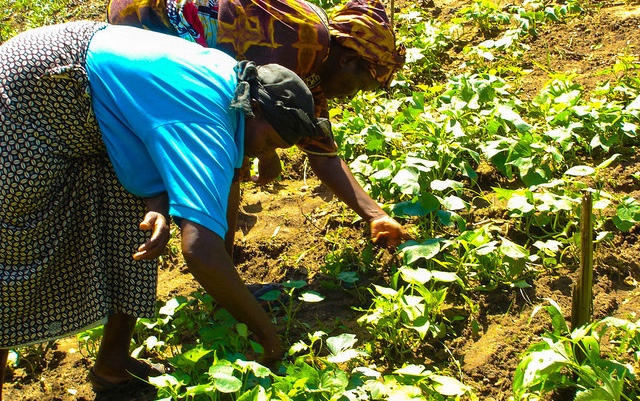On International Rural Women’s Day in 2016, approximately 500 women representing 22 African countries gathered at the base of Mt. Kilimanjaro and 29 climbed the mountain to call attention to the importance of women’s land rights. Their charter of demands included facilitating women’s access to land rights; ensuring women’s equal participation in land policy development; and enacting inheritance laws to protect women, among others. But why are land rights so important to rural women?
Quite simply, land is the most valuable asset among many rural people and households, as land is the foundation of rural livelihoods. Our recent review of existing research on women’s land rights identifies pathways by which women’s land rights could reduce poverty and achieve other development outcomes.
Despite widespread acknowledgement that land rights are integral to poverty reduction among rural communities, very little research directly explores the relationship between women’s land rights and poverty. One reason may be the lingering assumption that women share household resources equally, and therefore it’s a household’s, not women’s, rights to land that matters for reducing poverty.
However, a large body of existing evidence already shows households do not pool their resources completely, and women who depend on men for their access to land are vulnerable to losing their homes and livelihoods in cases of widowhood or divorce.
There is growing evidence on the pathways between women’s land rights and other development outcomes linked to poverty reduction. The various studies reviewed show high agreement that women’s land rights enhance bargaining power within the household and women’s empowerment, as well as women’s food consumption and food security.
Women with more secure land rights are more likely to invest in environmentally sustainable land management practices like planting trees or soil conservation. But there is relatively little evidence that women’s land rights improve access to credit, partly because this pathway requires well-functioning credit markets, with banking systems that accept land as collateral.
Important gaps in the evidence remain: Many studies still measure land rights at the household rather than individual level, and fail to account for the complexity of how the formal laws around land interact with social norms and practices. Those that do are mostly from Africa.
Although further research is needed to address evidence gaps, that should not deter the careful design and implementation of programs and policies to strengthen women’s land rights. Land tenure reforms are proceeding in many countries, owing to increasing pressures on the resource. If such reforms do not specifically seek to strengthen women’s land rights, they are likely to weaken them, with clear negative consequences for women and their households.
Strengthening women’s land rights means involving women in the process of legal reforms and their implementation, including women’s names in any land registration documents, and providing information, legal assistance, and administrative services so that women are aware of their rights and able to exercise them.
Rural women themselves declared, from the top of Kilimanjaro, strengthening their land rights to be a principal policy issue. Heeding their words is a promising step forward toward global gender equality.
Ruth Meinzen-Dick and Agnes Quisumbing are IFPRI Senior Research Fellows. Cheryl Doss is a Senior Departmental Lecturer in the Department of International Development of Oxford University. Sophie Theis is an IFPRI Research Analyst. This post first appeared on the Thomson-Reuters Place site.







